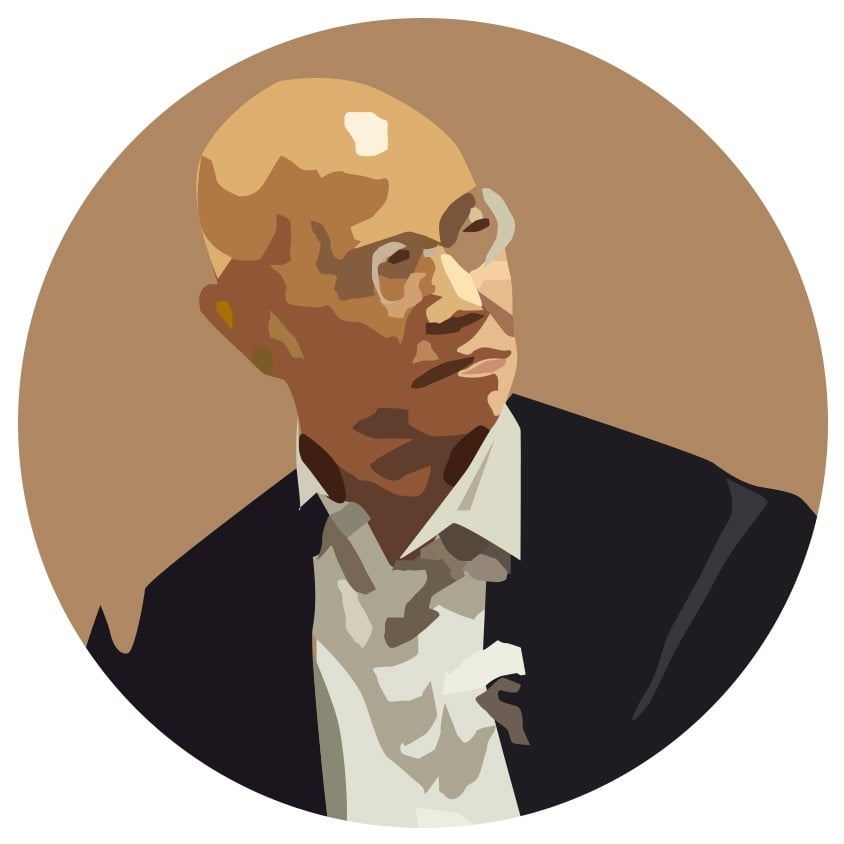But of course, having the people have the right to vote is still better than living under total military dictatorship.
Only Indonesia, India, and South Korea are worth following.
Indonesia will have elections on February 14th. More than 200 million people are eligible to vote in this year’s Indonesian elections. It is considered the largest direct presidential vote in the world.
Three candidates stand out: Defense Minister Prabowo Subianto, former Central Java Governor Ganjar Pranovo and former Jakarta Governor Anis Basvedan.
They are competing to replace President Joko “Jokowi” Widodo, a position that lasts for two terms.
The elections are a significant test of the strength of the future of democracy and political culture in Indonesia.
In campaigning, in addition to the candidates’ financial and leadership abilities, they also emphasize policies that emphasize human rights and freedom of expression of the people.
While Widodo is ineligible to compete But his eldest son is Prabowo’s teammate.
Initially it became a widely discussed issue in the political circles.
Gibran Rakabuming’s bid for vice president comes just days after a court decision sparked a debate about why the 36-year-old was left open to participation. competing despite the original age limit being set by law at 40 years.
Or is it because he is the son of the current president?
This sparked major criticism. and concerns about eroding public trust in institutions. of Indonesia
It was widely criticized and gossiped because of Chief Justice Anwar Usman. who is the judge of the said case Widodo’s brother-in-law
who was later removed from his position for ethical reasons But in a poll conducted between Nov. 23 and Dec. 1 by Indikator Politik Indonesia, 44.9% of respondents said they would vote for Prabowo. Third-time presidential contender
While 24.7% support the ruling party’s Ganjar, Anies is in third place at 22.6%.
Jokowi has not yet announced his support for any candidate. official But with Gibran serving as Prabowo’s vice-presidential candidate, So there is no doubt about which side he personally is on.
South Korea will cast its ballot on April 10 for the legislative election. This will be key in deciding the fate of President Yoon Suk-yeol’s administration.
Since taking office last year Yoon was unable to pass the bill. Because the opposition Democratic Party holds a majority in parliament, with 167 seats out of a total of 298 seats.
That means his People Power Party will need to win parliamentary elections to have any hope of achieving much over the remainder of Yoon’s single five-year term.
South Korean politics tends to move quickly. And a lot can change between now and April.
But early signs are not in support of Yoon’s party. His support rating has stuck at around 35% throughout his term.
In other words, the Democratic Party is facing its own problems. In particular, some senior members are facing corruption charges.
The Democratic Party wants to win this election. Because they want Yoon to be the lame duck president. Because they know they cannot pursue their domestic agenda if they lose.
As for the elections in India, there will be quite a bit of color and complexity.
Because it is a casting ballot for the general election of the most populous country in the world. and has the largest democracy in the world
Ballot drop days are scheduled to spread out over several weeks in April and May.
Prime Minister Narendra Modi and his Bharatiya Janata Party (BJP) are seeking a third consecutive five-year term in office.
India is a South Asian country of 1.4 billion people with 950 million registered voters.
Modi, now 73, remains widely popular among Indians. Meanwhile, the opposition is struggling to overthrow this government.
When fighting one on one is difficult The opposition too must come together to challenge the BJP.
More than 20 opposition parties have formed an alliance called INDIA, which stands for Indian National Developmental Inclusive Alliance.
This group consists of the main opposition parties. which is the Indian National Congress Hoping to return to the glorious era of politics again.
The latest signs, however, do little to boost confidence among political parties seeking to reduce popular approval of Prime Minister Modi.
When 5 states held elections last November, the ruling BJP swept all three states in the Hindi-speaking region. which is politically important The opposition alliance has failed to prove much unity.
It clearly shows that there is still a lack of a clear strategy to counter the BJP’s Hindu nationalism and the numerous welfare programs launched by the Modi government.
The INDUA coalition, which includes some parties that are bitter rivals in some state elections, He has not even nominated a candidate for the position of Prime Minister.
While a lot could change in the coming months, the BJP is in a strong position.
Opportunity to topple Modi and the BJP is rare. Unless there is a miracle between now and this April-May!.
#Election #year #world #Indonesia #India #South #Korea
2024-01-08 17:03:23


